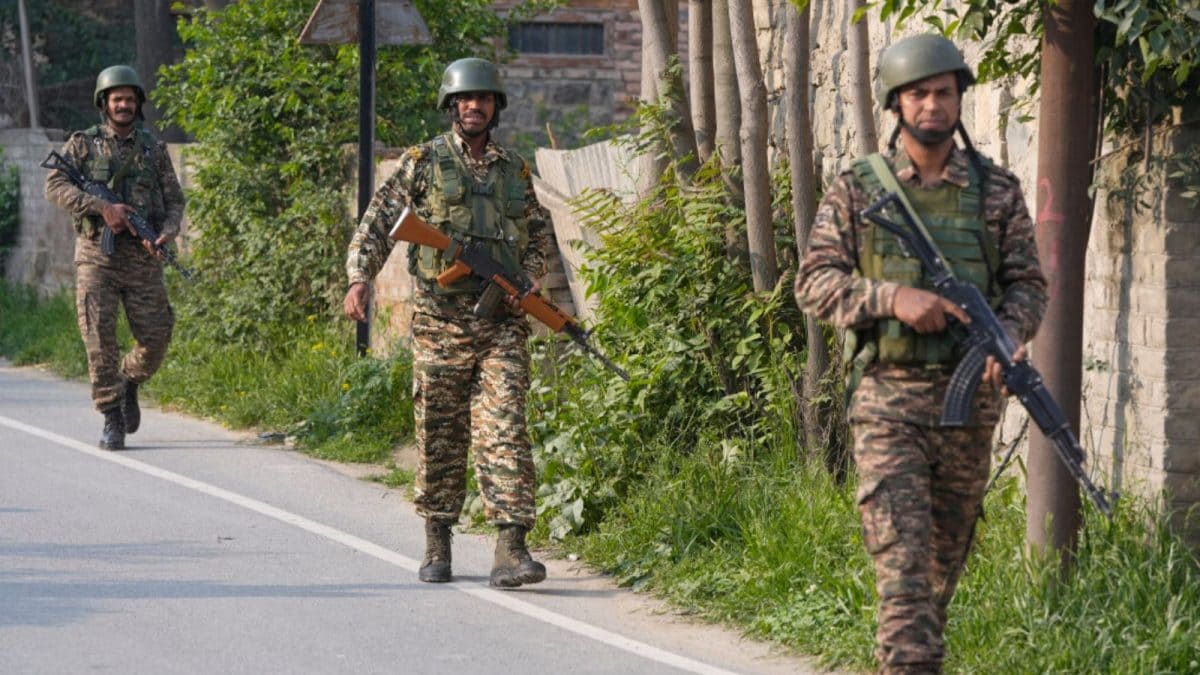Last Updated:
Operation Sindoor: Those in high alert areas are advised by experts not to share photographs and videos related to the movements of Armed forces on social media.
India launched Operation Sindoor earlier this week to target terrorist infrastructure in Pakistan and PoK. Representational pic/PTI
Amid heightened tensions at the India-Pakistan border, social media continues to see a surge in images, videos and posts—some from unverified sources. While many posts are being shared out of concern or curiosity, such content may unintentionally reveal sensitive information that could be misused.
This is the time to “be a responsible citizen,” said Army veteran Lt Gen KJS Dhillon in a post on X.
The defence veteran has urged citizens to exercise caution online, warning that enemies are “scanning our social media” for information that could be exploited. He advised against sharing any content related to the Indian armed forces, including troop movements, locations, deployments, or force types, as even seemingly harmless posts could compromise national security.
Be a responsible citizen Enemy is scanning our social media to look for actionable information.
Please DO NOT share anything related to forces type, locations, deployment, movement, that can be used by the enemy
WE WILL PREVAIL
Jai Hind 🇮🇳 pic.twitter.com/Y6BS4D3oCr
— KJS DHILLON🇮🇳 (@TinyDhillon) May 10, 2025
Indian citizens, particularly those in high-alert zones, have been strongly advised to refrain from capturing photographs or videos of any military movements. Additionally, sharing specific details that could inadvertently reveal locations or operational activity has been discouraged, in the interest of national security.
Cyber Security
Cybersecurity risks continue to rise, with hackers increasingly exploiting spyware to access personal data and compromise mobile phones. This poses a serious threat as cybercriminals gain unauthorised access to smartphones, using pictures, videos and even real-time surveillance for malicious purposes.
In response to the recent Pahalgam terror attack, the Government of India, through its Computer Emergency Response Team (CERT-In), has urged financial institutions and critical sectors to bolster their cyber defences, as reported by Moneycontrol.
This was done to avoid the surge in cyberattacks across various Indian digital entities.
Even prominent figures like filmmaker SS Rajamouli have echoed the call for caution. In a recent post, he urged everyone to avoid sharing images or videos of any Indian Army movements. He wrote, “Don’t share them as you might be helping the enemy. Stop forwarding unverified news or claims. You’ll only create noise, which the enemy wants. Stay calm, alert and positive. Victory is ours.”
If you see any movement of the Indian Army, don’t take pictures or videos.Don’t share them as you might be helping the enemy. Stop forwarding unverified news or claims. You’ll only create noise, which the enemy wants.
Stay calm, alert and positive.Victory is ours. 🇮🇳
— rajamouli ss (@ssrajamouli) May 9, 2025
How To Prevent Images, Videos From Being Compromised
1. Antivirus
The first line of defence against cyber threats is installing reliable antivirus or anti-malware software from trusted vendors. This helps detect and prevent malicious attacks.
2. Avoid messages from strangers
Do not click on links or open attachments from unknown numbers or email addresses. Cybercriminals often use these methods to trick users into compromising their devices.
3. VPN for Public WiFi
When connecting to public Wi-Fi, always use a VPN (Virtual Private Network). A VPN encrypts your internet connection, safeguarding your data from potential hackers.
4. Strong passwords
The best possible practice to secure your data is to have strong passwords for your accounts and WiFi at home that cannot be guessed easily.
5. Update the device
Ensure that your device’s operating system and apps are always up-to-date with the latest security patches.
- First Published:

